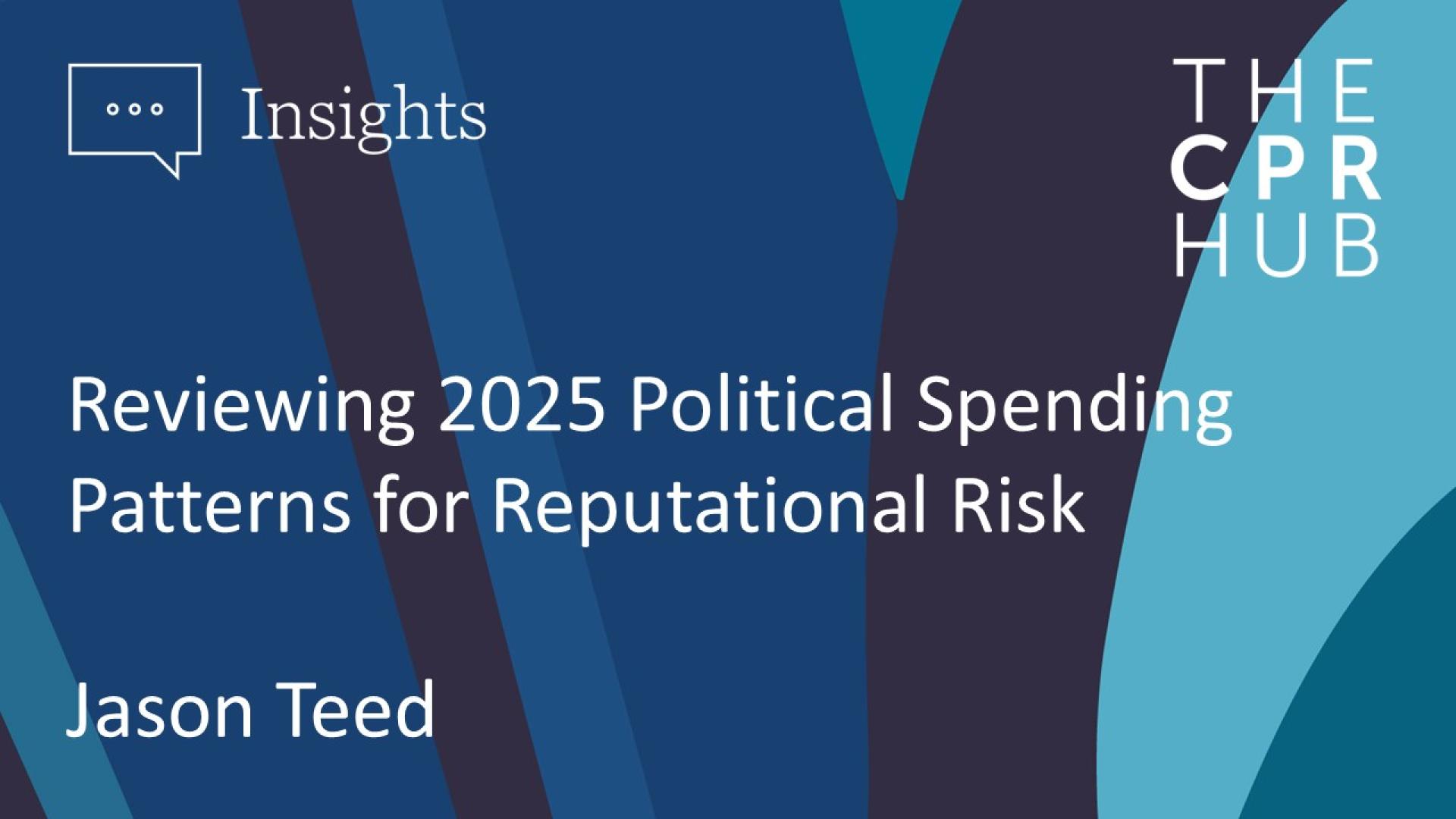Corporate political responsibility (CPR) is about conducting a company’s political activities in a way that benefits the company itself, its immediate stakeholders and society at large. Yet despite its obvious importance, business school curricula have too often treated responsibilities toward the broader society as a side issue. Students learn how to analyze markets, optimize capital structure, or manage supply chains, but not how to navigate the policy environments in which those decisions unfold and to ensure that corporate political activities are ethically aligned with a company’s public commitments.
But things are beginning to change. The innovative ESG Design Challenge introduced at the University of Michigan, which invites students to examining the dilemma banks face in navigating their management duties in managing risk and a political environment of distrust and conflict. That effort is an example of how CPR can be brought into the classroom through a specific issue.
This gap in business education has real consequences. Clearly, public policy and the political environment impact corporate strategy. And as we’ve seen with recent attention to corporate climate commitments, scrutiny of DEI practices, the backlash to ESG investing, the use of campaign contributions to influence utility regulation, or pressures from whistleblowers, companies are increasingly expected to justify their political behavior to stakeholders—and often struggle to do so.
Missteps not only erode public trust but create real financial risk. Companies are increasingly aware that new hires should be equipped to deal with those risks – to critically assess their company’s public affairs strategies or to design better ones. That’s why we need to bring CPR into the classroom across the entire business school curriculum.
A call to action
With this in mind, I have written a longer paper, Bringing Corporate Political Responsibility into Business Classrooms, which outlines ways to bring corporate political strategies into classroom discussion. Using the CPR principles developed by The Erb Institute at the University of Michigan as an organizing framework, the paper provides detailed suggestions for cases and videos. I have made a special effort to highlight how those materials can be used to bring CPR into “hard” core courses like business economics and corporate finance.
I see all as a call to action for students, educators, and industry leaders to embrace corporate political responsibility in all its complexity. Only by fostering a classroom environment that encourages dialogue, critical thinking, and holistic understanding, can we equip the next generation of leaders with the tools needed to navigate interplay between corporate actions and the well-being of society.
Business, after all, is political – and perhaps more today than ever before. We are at a tipping point. As the current turmoil over tariffs perfectly illustrates, public policies and government can provide the level playing field companies need to compete, or it can create barriers. Corporate political strategies can be part of the problem or part of the solution. As today’s students come out of the classroom and into the marketplace, they will face decisions where political engagement plays a role. Let’s prepare them to handle those challenges with clarity, integrity, and insight.
***
Gabriel Correa Acosta is a recent graduate of the Stephen M. Ross School of Business at the University of Michigan, receiving a Bachelors of Business Administration in 2023 and a Masters of Supply Chain Management in 2024. He originally wrote his paper on Bringing Corporate Political Responsibility into Business School Classrooms as an independent study project for Prof. Tom Lyon. The paper was influenced by conversations at a Corporate Political Responsibility workshop hosted by the Erb Institute at the University of Michigan, with participation by the Alliance for Responsible Capitalism.




Comments
Comment on this Insight